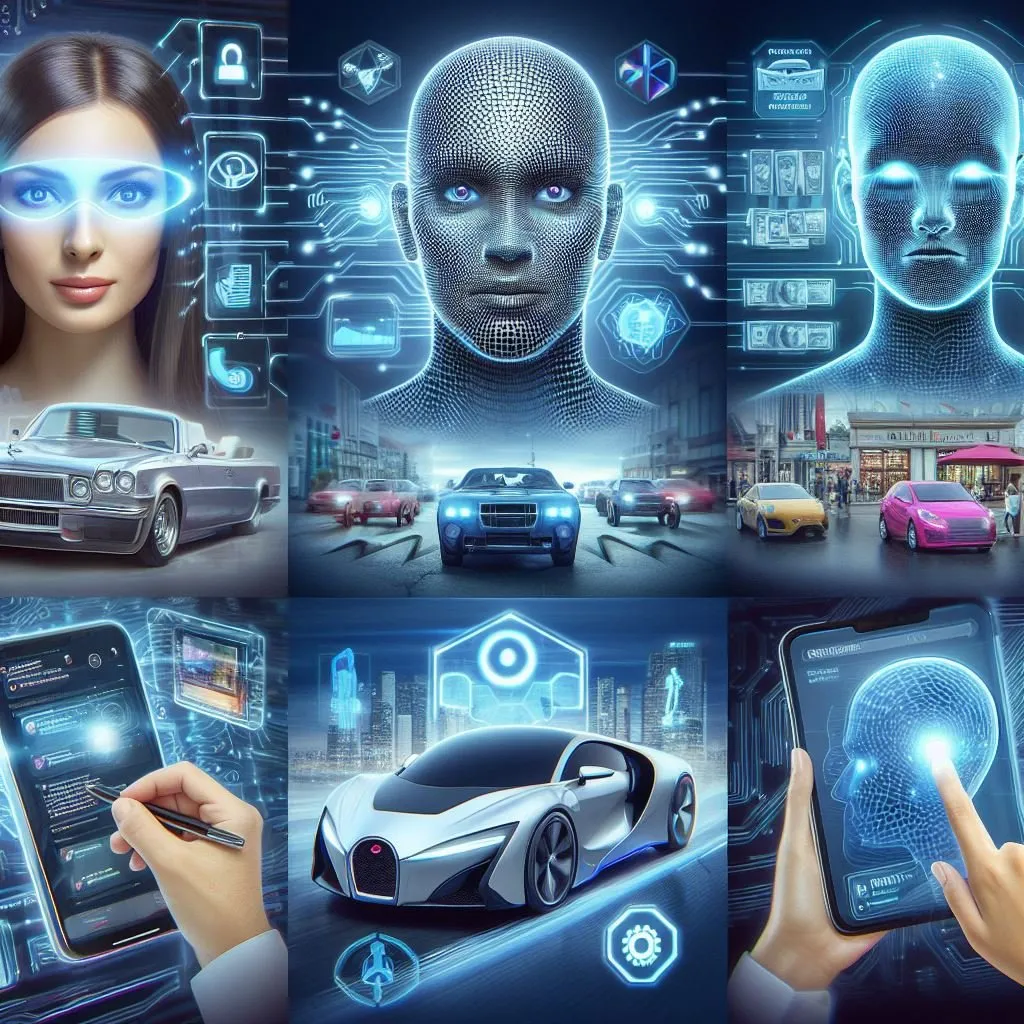5 Real-World Examples of AI Transforming Businesses
Artificial Intelligence (AI) is rapidly reshaping the business landscape, offering innovative solutions across various industries. Let’s explore five compelling real-world examples of AI applications that are driving efficiency, enhancing customer experiences, and revolutionizing business operations.

1. Healthcare: AI-Powered Diagnostics
In the healthcare sector, AI is making significant strides in disease detection and diagnosis. For instance:
IBM Watson and GE Collaboration: IBM Watson, in collaboration with GE, has developed an AI system capable of analyzing medical images with remarkable accuracy. This system assists doctors in identifying diseases, including cancer, with an impressive 94% success rate. By leveraging AI, healthcare professionals can make faster and more precise diagnoses, ultimately improving patient outcomes.
2. Retail: AI-Driven Customer Service
Retailers are increasingly turning to AI-powered chatbots to enhance customer service. A prime example is:
H&M’s Chatbot: H&M, a global fashion retailer, has implemented an AI chatbot on its website. This virtual assistant helps customers find products, answers their queries, and even facilitates purchases. By automating routine interactions, H&M reduces the need for human intervention, streamlining the shopping experience.
3. Finance: AI for Fraud Detection
Banks and financial institutions rely on AI algorithms to detect fraudulent activities and manage risks. Noteworthy example:
JPMorgan Chase’s “Julius” System: JPMorgan Chase employs an AI system named “Julius” to analyze millions of transactions daily. By identifying suspicious patterns and anomalies, Julius helps prevent fraud and ensures the security of financial transactions.
4. Manufacturing: AI-Driven Optimization
Manufacturing companies leverage AI to optimize production processes, minimize downtime, and improve efficiency. A standout case:
General Electric’s Predictive Maintenance System: General Electric (GE) has implemented an AI-powered predictive maintenance system. By analyzing data from sensors and equipment, this system predicts potential issues before they escalate into costly problems. As a result, equipment failures are reduced, and production uptime is maximized.
5. Transportation: Self-Driving Cars
Self-driving cars represent one of the most prominent AI applications in the transportation industry. Companies like Tesla and Waymo are at the forefront of this technological revolution:
Tesla and Waymo: Both Tesla and Waymo are developing autonomous vehicles that rely on machine learning algorithms. These cars navigate roads safely, interpret traffic signals, and adapt to changing conditions—all without human intervention. Self-driving technology has the potential to transform transportation, making it safer and more efficient.
In conclusion, AI is no longer a futuristic concept—it’s a reality reshaping businesses worldwide. As companies continue to embrace AI, we can expect even more groundbreaking innovations in the years to come.
Author

Ching Yu Tan is an AI expert, educator, and consultant who helps businesses and professionals harness the power of artificial intelligence for innovation and growth. He is the creator of the “AI Matrix”, a unique framework that simplifies and streamlines the integration of AI into core functions. He has worked with clients like Microsoft, Schneider Electric, and Sarawak Energy, and has been featured on Malaysia’s top business radio station - BFM 89.9 on the topic of AI. He is on a mission to drive the AI-powered future for businesses and professionals with his insights, methods, and results.
